Keeping Tracks: a one day symposium on music and archives in the digital age, British Library, 21st March 2014
0March 26, 2014 by Elodie A. Roy
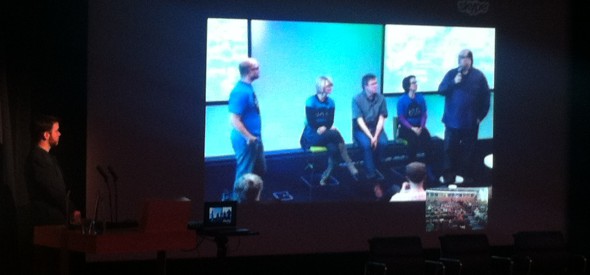
In his short docu-fiction about the Bibliothèque Nationale Française, Alain Resnais emphasised the inescapable weight of the archive. He patiently filmed endless rows of books and other printed material, picturing the Library as a ravenous beast, ceaselessly absorbing new contents. His film – entitled Toute la Mémoire du Monde (‘All the Memory in the World’) – was shot in 1956.
I was thinking of the recent passing of Resnais as I made my way to the British Library on the 21st of March. It was a sunny morning in London. Richard Elliott and I were to attend the Keeping Tracks event – ‘a one day symposium on music and archives in the digital age’. I wondered if Resnais had sometimes been overwhelmed by the sheer immensity of digital archives. Which sort of film would he have made about them…?
The symposium demonstrated the British Library’s eagerness to embrace the ‘digital age’, an expression which Adam Tovell (British Library Sound and Vision) used to characterise the contemporary age, where cultural contents are predominantly accessed and stored online (rather than in the physical realm).
A diversity of speakers – including sound archivists, label owners and engineers, were gathered to reflect upon the future of sound archives. The British Library staff appeared anxious to engage in dialogue with as many participants as possible. The Library is currently trying to negotiate, and have negotiated, partnerships with existing sound archives and record labels currently engaged in similar endeavours – these include the BBC and Beggars Banquet. Alex Wilson (British Library Sound and Vision) explained that the British Library increasingly sees itself as a ‘connector’ rather than a traditional collector; this means that the Library is determined to establish links between existing archiving platforms and to make them accessible.
The British Library has traditionally accumulated and curated tangible music objects – from piano rolls and wax cylinders to cassette tapes and compact-discs. It currently holds 5 million unique sound recordings, distributed across 1.7 million physical carriers and more than forty different formats. The British Library is met with the challenge of digitising its existing physical collection as well as archiving born-digital material. In order to do so, it uses ten transfer studios, which are active on a full-time basis.
According to the present digitisation plan, the whole of the British Library sound contents should be digitised within the next 15 years. Tovell explained that it might be impossible to digitise audio contents after 2030, for migration might have become too expensive at this point. It might even become difficult, due to technological obsolescence, to extract contents from CD-rs.
Of course, migrations to newer storage formats have long been understood as an essential part of sound preservation. For instance, British Library sound archivists started migrating contents towards digital formats in the early 1980s (with the advent of Betamax tapes), in order to resist the progressive disintegration and obsolescence of analogue formats (a process described by Alan Ward in his 1990 Manual of Sound Archive Administration). But today’s digital archiving is different in the sense that carriers, or physical media, now completely efface themselves – music objects become invisible, stored on and accessed from computer servers.
Speakers all unanimously agreed upon the immensity of the digitisation task – but they ultimately displayed varying degrees of enthusiasm. Some of them took the digitisation challenge as an opportunity; others showed more concern. Mark Fisher was especially eloquent in his closing keynote. Using terms strongly resonating with those of the sociologist Hartmut Rosa, he described a ‘crisis of historicity’ and suggested, after Simon Reynolds, that the weight and mass availability of the musical past prevents people from creating any new music. But Fisher may only have been speaking about popular music, which seems indeed to be frozen in referential poses. Fisher also pointed out that most digital technologies have to do with the distribution and consumption of music rather than its production. According to Fisher, ‘the euphoria of digitality’, for all its ubiquity, only poorly masquerades the fact that no one can really devote any time to listen to music anymore. Technologies are eating away individuals: one is inexorably connected, distracted, and increasingly drowning in the mass of social obligations created by new technological tools (emails, etc).
Moreover, the musical archive is continually growing; the archiving process itself is speeding up, as any new content created on the internet is instantaneously archived. What does the term ‘archive’ mean in such conditions? What does the word cover, when archives and archiving tools have become so inseparable from the everyday? How can institutions preserve conditions for future memory work to emerge?
The Western world appears to be busy frantically digitising its collections, but such a total archive might ultimately be illegible. On leaving the British Library, I was reminded of a question that Robert Gehl once asked in relation to YouTube: ‘Who will curate this digital Wunderkammer?…’.
One day was not enough to approach the core of the matter. It was enough, though, to produce a crushing sense of vertigo not dissimilar from the one that Resnais’s film may have inspired more than fifty years ago.
Links:
Resnais’s Toute la Mémoire du Monde on Youtube
Programme of the Symposium
Category Conference Updates | Tags: archives, libraries, sound recordings
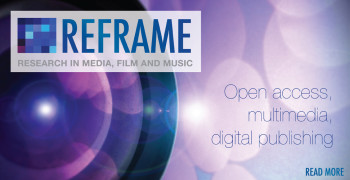


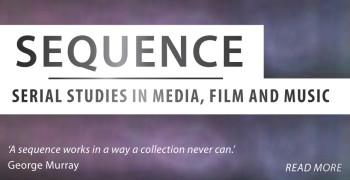

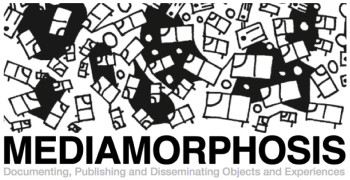
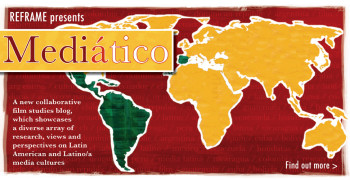

Leave a Reply